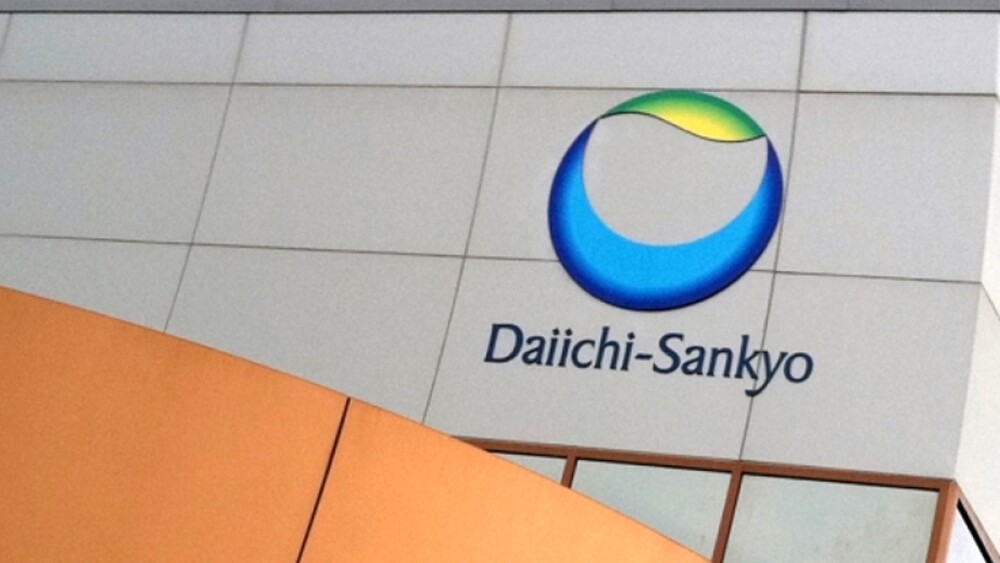May 11, 2017
By Mark Terry, BioSpace.com Breaking News Staff
Japan’s Daiichi Sankyo released its full-year financials but the big takeaway was the closing of six clinical programs.
John Carroll, writing for Endpoints News, said, “Altogether Daiichi Sankyo got rid of a half-dozen clinical programs, including its late-stage program involving ArQule (ARQL)’s tivantinib, which we already know proved to be a failure. A Phase II diabetes drug, GRP119 agonist dubbed DS-8500, also didn’t make the cut.”
Included in the cuts was DS-9001, which Daiichi Sankyo was developing with Pieris. Carroll writes, “DS-9001 was dropped by Daiichi Sankyo after investigators reviewed the data they had on the Phase I therapy targeting PCSK9. Pieris has been working for years on engineering proteins that are lighter and more versatile than antibodies, so that they can work where antibodies find their entry barred.”
PCSK9 inhibitors are aimed at cholesterol, and products in the category being developed by Amgen , and Regeneron and Sanofi , have struggled to gain traction in the market, largely because of price. Although the drugs, Sanofi/Regeneron’s Praluent and Amgen’s Repatha, are effective for patients who don’t respond to statins, they are priced around $14,000 a year, compared to a typical $60 per month for statins. Insurers see little justification for switching a typical high-cholesterol patient to the pricier drugs.
Daiichi Sankyo has been in the process of reorganizing its research-and-development unit. In February, the indicated that it was closing a research center in Japan that had 150 researchers, and transferring their work to other units. In January, it announced it was closing its R&D facility in Gurgaon, India. Approximately 170 staffers were affected. The company stated, “Daiichi Sankyo is reviewing its global R&D system with the aim of decreasing R&D operations costs and redistributing resources to the further development of its R&D pipeline.”
It had previously closed an R&D facility in the UK, based in Gerrards Cross, England. That was announced in February 2016 and that site employed 80 people. Those operations were transferred to its Edison, NJ-based subsidiary and its European subsidiary, based in Munich, Germany.
All told, the six programs included Tivantinib/ARQ 197, an MET inhibitor for hepatocellular cancer; DS-8895, an anti-EPHA2 antibody for solid tumors; DS-5573, an anti-B7-H3 antibody for solid tumors; U3-1784, an anti-FGFR4 antibody for solid tumors; DS-8500, a GGPR119 agonist for diabetes; and DS-9001 an anti-PCSK9 anticalin-albumod for dyslipidemia (high cholesterol).
In early January, Daiichi Sankyo announced a strategic partnership with Kite Pharma . That deal revolved around Kite’s lead product candidate, axicabtagene ciloleucel, a CAR-T product for B-cell lymphomas and leukemias. Under the deal, Daiichi Sankyo took over development and commercialization of the compound in Japan.
Kite’s program had a setback recently, announcing on Monday that there had been a patient death in late April in its clinical trial. The trial continues, but it concerned investors because Juno Therapeutics had shuttered one of its CAR-T programs, JCAR015, because of five patient deaths from cerebral edemas, a side effect of the CAR-T treatments.
In the quarter ending March 31, the company announced revenue of 955.1 million yen, down 3.2 percent from the 2016 quarterly. Company profits for the 2017 quarter were 47.5 million yen, down 40.9 percent from the previous year’s quarterly profit of 80.4 million yen. Group revenue for the year was 955.1 billion yen. The company stated, “Despite growth in sales of mainstay products in Japan, Europe, and Asia, negative effects on revenue stemming from a decrease in sales of Olmesartan and yen appreciate (41.6 billion yen) led to a decrease in revenue.





